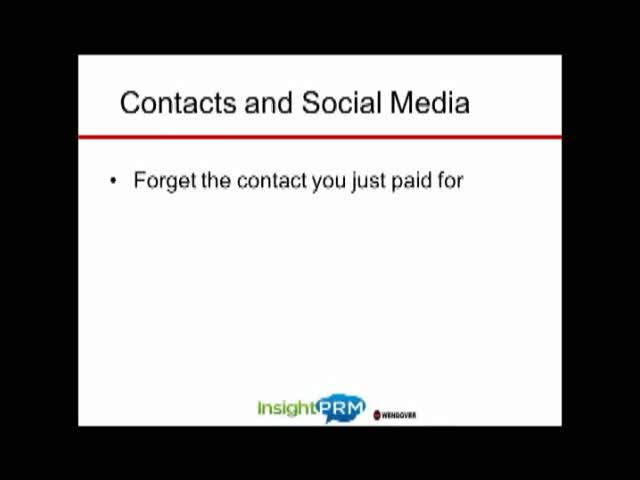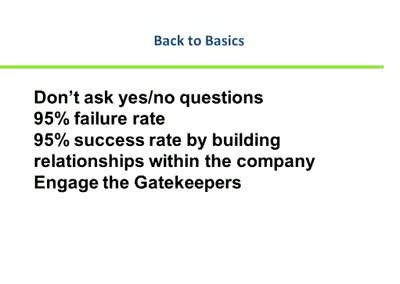Questions not to ask when cold-calling
by Shannon F.
Phone conversations start to go south for many salespeople when they begin asking questions. After all, no one enjoys being cold-called by a stranger only to be put through a detailed interrogation. And while certain questions are necessary for a productive phone call, you’ll find it easier to engage with prospects if you already know a little bit about their company. Don’t get all creepy or stalker-ish on them, but take the time to learn more about what they do. You can get a better idea of what their goals are and what needs they may have. Here are some questions you simply shouldn’t be asking your prospects:
“What kind of company are you?” or “What do you do?” Seriously? You can find this out yourself in literally 2 seconds, so asking this on a phone call is a definite no.
“Who is the decision-maker I should speak to?” Or, similarly, “Can I speak with the owner?” You’ll have a much better chance of being transferred to the person you wish to speak to if you actually know his or her name. A quick search on LinkedIn or Jigsaw should yield results (if you store your leads in a lead management system, you should be able to do some pre-call research directly from the program).
“Can you tell me what your objectives are?” or, “What kinds of problems are you having?” While it makes sense to find out what your prospect hopes to accomplish (so that you can recommend the right product or service), probing too much during an initial cold call is bound to get you a “None of your business” response. Instead, take a proactive approach by introducing business development strategies that your prospect hasn’t even considered yet.
“Yes” or “no” questions. A closed-ended question can bring your conversation to a grinding halt. For example, never ask, “Are you in the market for [insert product or service]?” or, even worse, “Do you have a few minutes to talk about ____?” Likely, your prospect will say “no” just to get you off the phone. Instead, do some pre-call research to find out the likelihood that your prospect will, at some point, need what you are selling. For example, if you have found out that they are moving, they will probably need new office furniture, an updated phone system, an IT relocation specialist, etc. Now, based on the probability that your prospect will be buying from either you or your competitor in the future, you can talk about what actually matters: how you can help them preempt a problem, save money, or grow their business.
Annoying questions. This is a broad, highly subjective category, and I couldn’t possibly list everyone’s pet peeve. Your best bet is to avoid clichés and the kinds of questions that attempt to build a substantive conversation out of nothing. For example, if you didn’t do any research, you might ask, “What problem keeps you up at night?” or, “If you could have one wish for your company, what would it be?” If you actually did your homework, you should be able to make an educated guess about your prospect’s wishes, hopes, and dreams. You can then move on to more interesting questions, the kind that don’t trigger eye-rolls. Coming tomorrow: the questions you should be asking.










